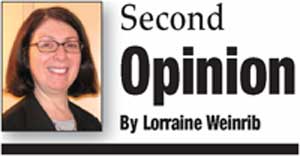One often hears the Charter described on the international stage as a highly-respected, rights-protecting instrument. I suspect that many people take such claims with a grain of salt given that they usually arise on celebratory occasions or as bald assertions to counter Charter critics and rejectionists.

In fact, the Charter now stands as an admired model of rights protection. It strongly influenced the statutory bills of rights in New Zealand and Hong Kong. It provided the dominant model for the South African Constitution and two Israeli Basic Laws.
The Charter has become a hot issue in a political debate raging in Israel.
The importance of the Charter beyond our borders should not surprise us. Constitutional development often draws on cognate political systems for ideas, text, and institutional structure to adapt to the particularities of the domestic context. In the post-Second World War era, in which rights protection stands at the core of constitutional structure, this comparative engagement has intensified.
An important part of this comparative engagement is doctrinal. Many courts in far-flung countries now implement our two-stage approach to Charter adjudication - purposive interpretation of rights and then restricted limitations upon those rights according to the Oakes test.
Canada did not invent this methodology. Chief Justice Brian Dickson drew its elements from various legal sources, which he regretfully did not identify. His cogently-reasoned delineation of the institutional roles dictated by the Charter appealed to countries looking for a doctrinal template that would temper legislative supremacy to effective rights protection.
While we don’t usually think of it this way, this methodology reflects the Charter’s distinctive delineation of the interlocking roles of the legislatures, the executive, and the courts in the project of rights protection.
While other legal systems adopted our two-stage approach, either formally or informally, only one country adopted the legislative override (the notwithstanding clause) as well: Israel. There currently is a fierce debate whether the Knesset, the Israeli parliament, should now extend its existing power to override economic rights to include rights relating to human dignity and liberty.
The proponents of extending the legislative override power raise many of the claims that animate our polarized debate on “judicial activism”: that the Israeli Supreme Court has usurped policy-making power that properly lies in the Knesset’s hands; that it has undermined the democratic process and the rule of law; and that the judges are too liberal, too homogeneous, and impose their personal values against the preferences of the elected legislature.
There are also some distinctive features in the Israeli debate. The Basic Laws that protect rights are not fully entrenched. They are subject to legislative change by an absolute majority vote of the Knesset. Moreover, not all rights are protected: there are no specific protections for equality, freedom of religion, or freedom of speech. The rules of standing and jurisdiction of the Supreme Court are also not entrenched. Moreover, the Supreme Court’s invalidation record is meagre.
The proposal’s champion is the recently-appointed Justice Minister Daniel Friedmann, who capped his career as a distinguished professor of private law by becoming a virulent critic of the Israeli Supreme Court’s work on public law. His appointment has been variously described as a declaration of war against the Supreme Court, an earthquake, a pogrom, and an act of revenge on the legal system.
His long list of reform projects includes a greater political role in the appointment of judges and those who exercise independent functions within the Ministry of Justice, particularly in the criminal justice system. His critics fear that he wants to weaken the legal system’s ability to act against public and private corruption as well as governmental ineptitude, waste, and mismanagement.
A number of law professors and opinion makers have entered the debate to question whether the justice minister’s invocation of the Canadian example to legitimate his override proposal is accurate in its depiction of the Canadian institutional roles and practices. Commentators have also pointed out that the striking differences between the Israeli and Canadian political systems and cultures militate against simplistic comparisons.
It is not possible to project how this crisis will play out in Israel. One thing is clear, however. When Canada’s prolonged and anguished debate on rights protection in a democratic society produced the compromise embodied in s. 1 and s. 33 of the Charter, it presented a distinctive array of institutional roles that is taken very seriously in other western democracies.
Lorraine Weinrib is a professor at the Faculty of Law, University of Toronto. For the month of May, she taught at the Centre for Advanced Legal Studies at the Tel Aviv Law School in Israel.

 In fact, the Charter now stands as an admired model of rights protection. It strongly influenced the statutory bills of rights in New Zealand and Hong Kong. It provided the dominant model for the South African Constitution and two Israeli Basic Laws.
In fact, the Charter now stands as an admired model of rights protection. It strongly influenced the statutory bills of rights in New Zealand and Hong Kong. It provided the dominant model for the South African Constitution and two Israeli Basic Laws.